PPC keyword research is the process of finding the exact words or phrases people type into Google when they’re looking for something related to your product or service. It helps you target the right audience, avoid wasting money on irrelevant clicks, and attract people who are actually ready to buy.
When I asked experts for their #1 PPC tip for beginners (see my introduction to search ads), many said it’s smart to focus on keywords that are less popular, more specific, and cheaper. This guide will help you find those keywords, and avoid wasting money bidding on ones you already rank for organically.
One downside of using Google Keyword Planner for PPC keyword research is that it often shows broad search volume ranges, which makes it hard to judge how popular a keyword really is.
For instance, for the keyword “crypto wallet” it shows a broad range of 10k-100k searches.
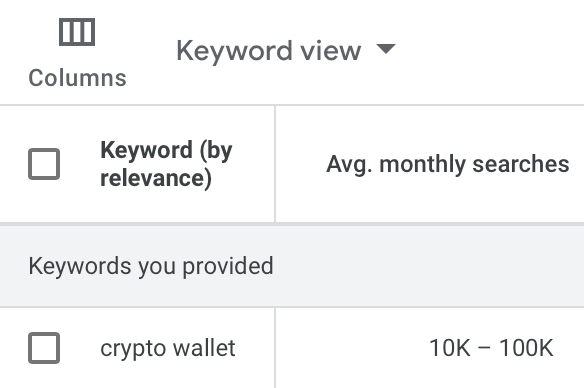
Tools like Ahrefs (that’s us!) can give you a clearer picture of a keyword’s popularity, making it easier to choose and prioritize the right ones for your campaign.

The Keyword Planner also tends to group similar keywords together, which can result in vague or overly broad suggestions that don’t reflect what people are actually searching for, especially when you’re looking for long-tail or niche keywords.
On top of that, the tool doesn’t provide data on your competitors, so you can’t see who’s bidding on which terms or how tough the competition is. All of this makes it harder to find precise, low-competition keywords that are actually worth your ad budget.
That’s where a combo like Ahrefs and ChatGPT really shines.
With Ahrefs, you can find more keyword ideas, get more precise volume estimates, and paid keyword reports for any competitor’s domain, and even translate for other markets on the spot.
Then, with ChatGPT, you can quickly filter, cluster, and prioritize those keywords based on business value, search intent, or even funnel stage.
In this guide, you’ll learn how to put this process into action step-by-step.
Let’s start with a few broad keywords related to your business (seed keywords). You can brainstorm some yourself and use Ahrefs’ built-in AI to help expand the list.
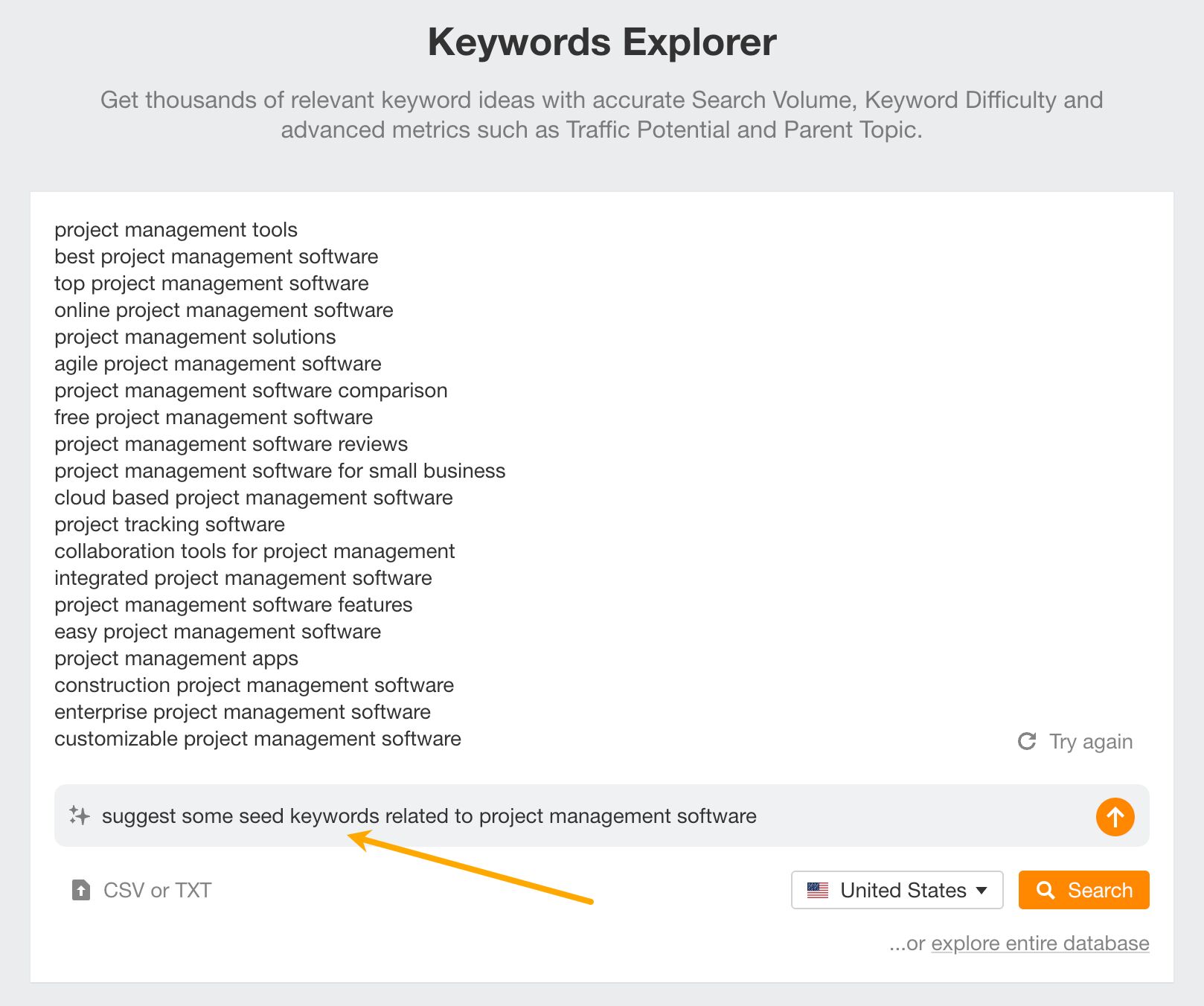
Next, go to the Matching terms report. Make sure you’re looking at results for the country where your core audience is. If you’re planning on running international or multilingual campaigns, we will translate the keywords in the following steps.
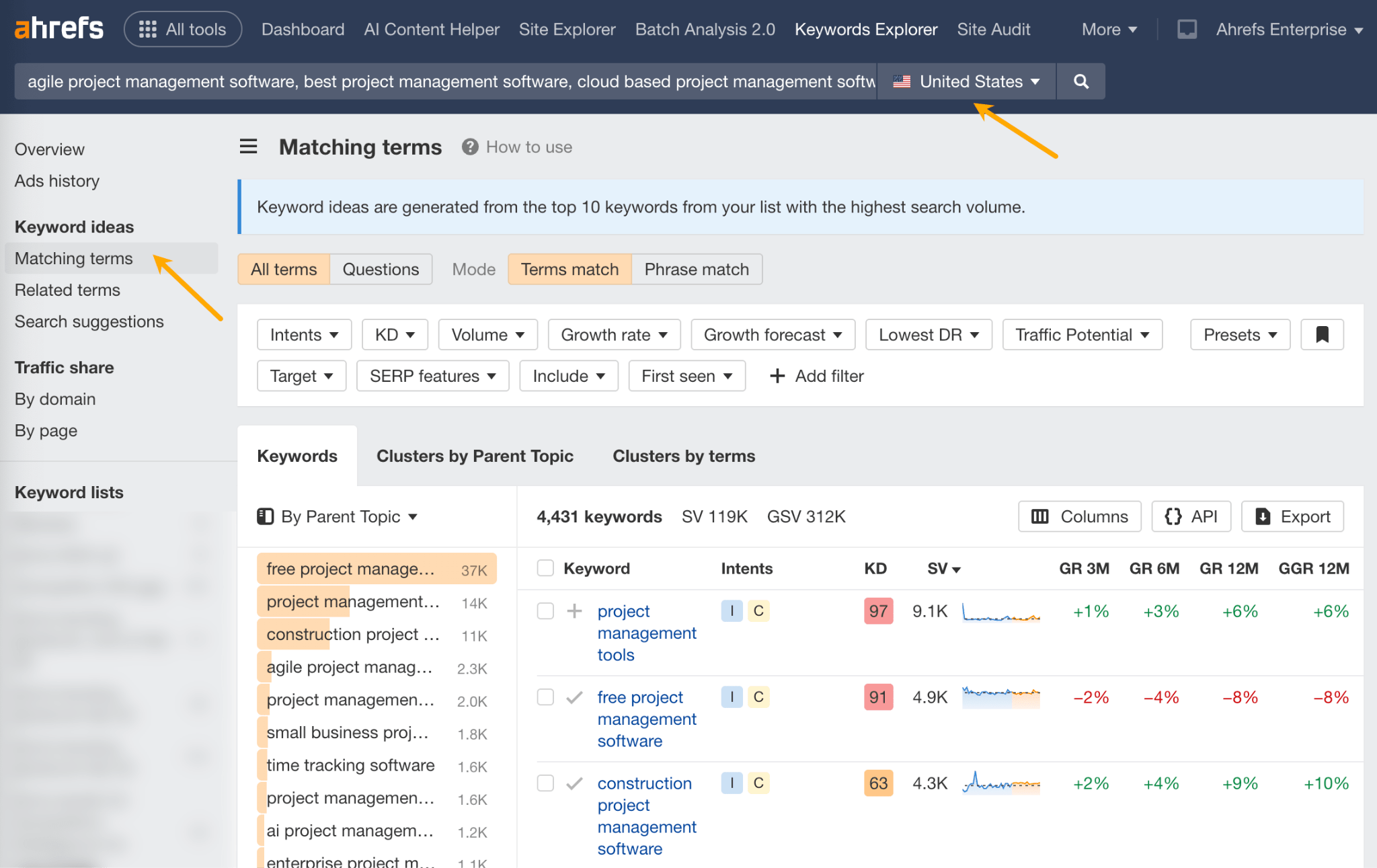
Exclude keywords where you rank in the top 10 and select intents: commercial and transactional. The two intent types typically mean the searcher is close to making a purchase. You can also filter out expensive keywords using the CPC filter.
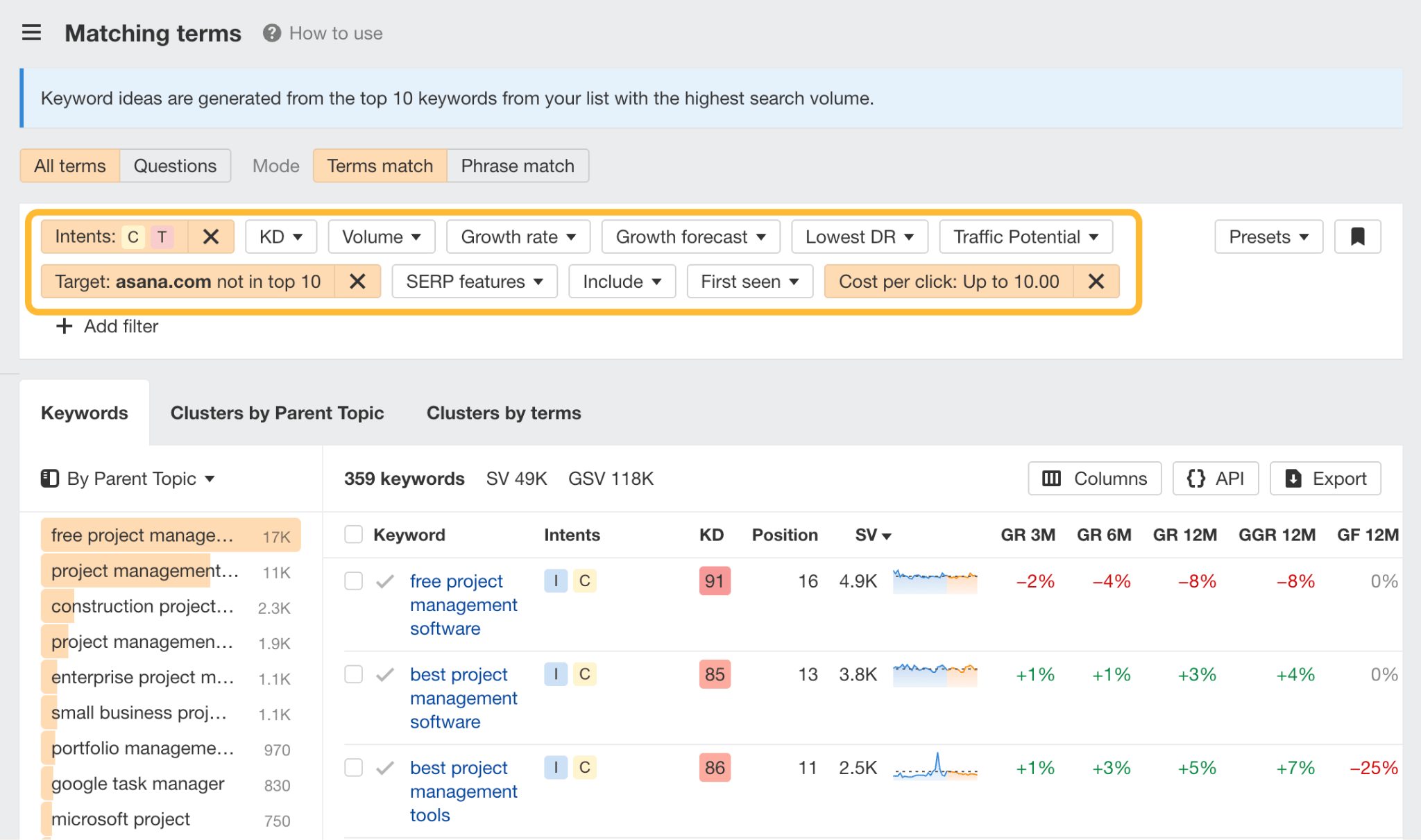
If you’re not sure how much you should pay for a click, you can figure out your maximum CPC with some simple math:
- Using product price. Max CPC = (Product price x Profit margin x Conversion rate)
- Using your max budget and expected number of conversions. Max CPC = (Budget x Conversion rate)/ Expected number of conversions
Finally, select all keywords and add them to a new keyword list.
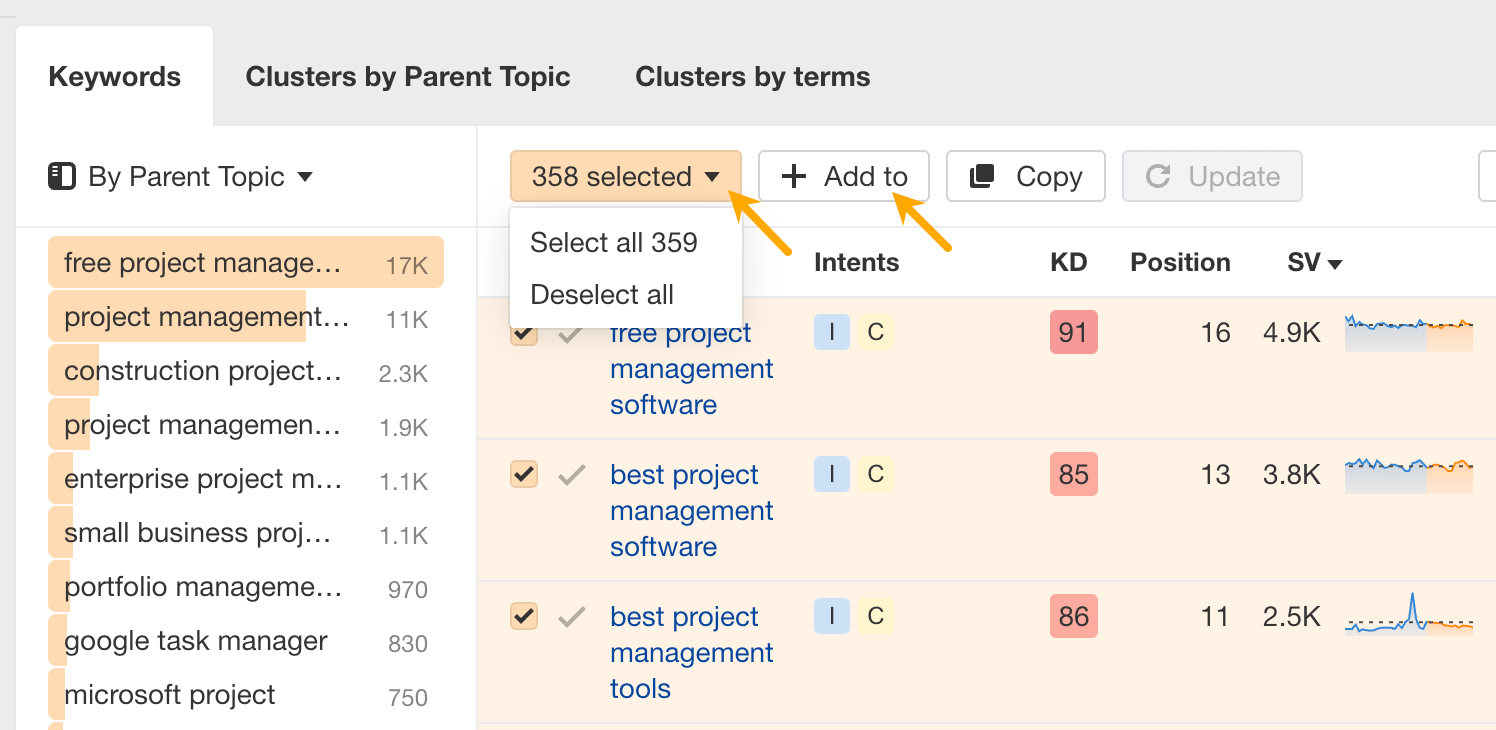
Tip
If your organic rankings are close to the top 10, you can optimize your content to move up. But you could also bid on those keywords in the meantime. Since you already rank for them, your ads will likely get a higher relevance score.
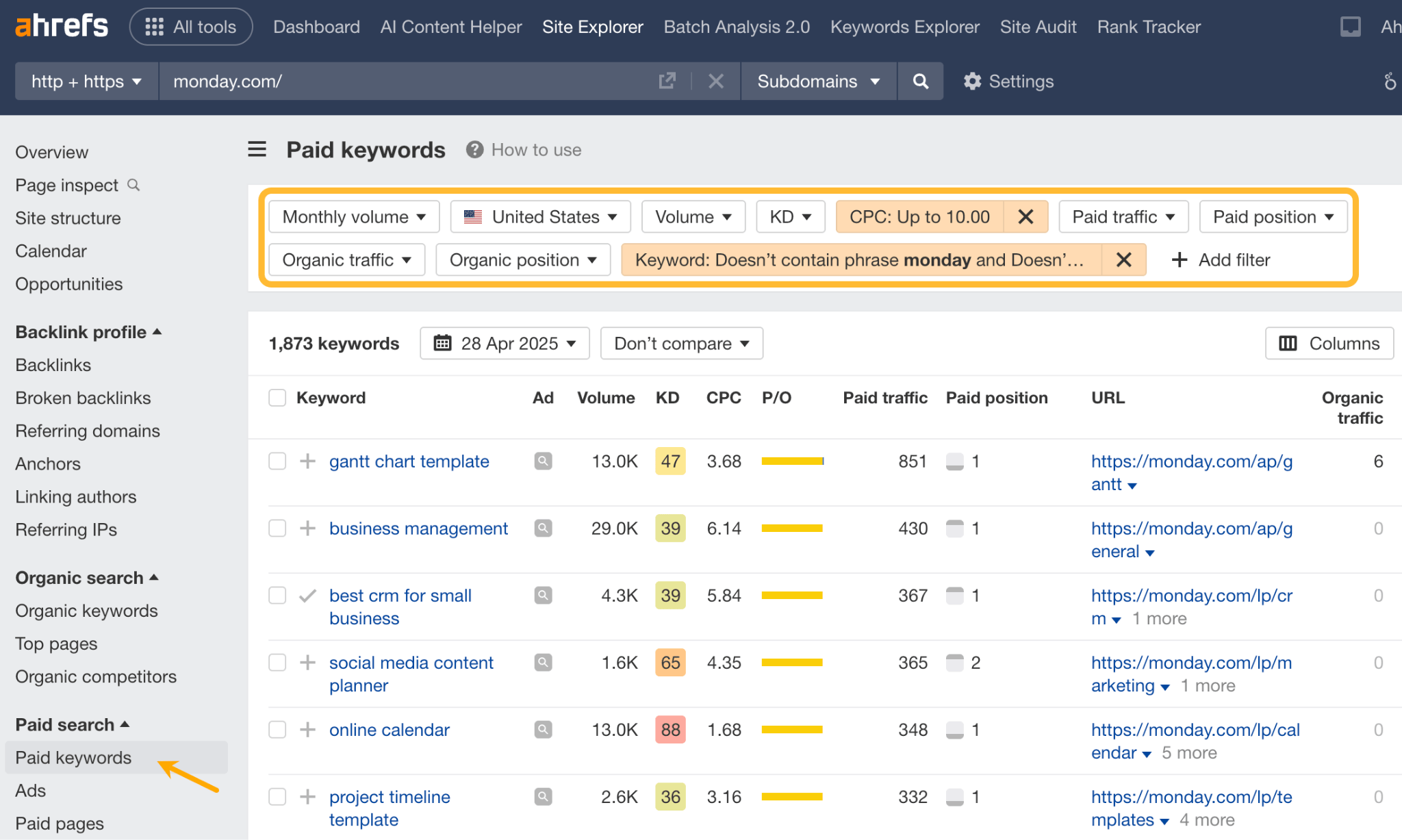
Add the results to your keyword list. Repeat for each competitor.
Tip
Here at Ahrefs we’ve just released the Paid Keywords 3.0 report. It shows which ads your competitors ran over the past month. Use it if the regular Paid Keywords report doesn’t return enough ads or whenever you want a broader view from the start.
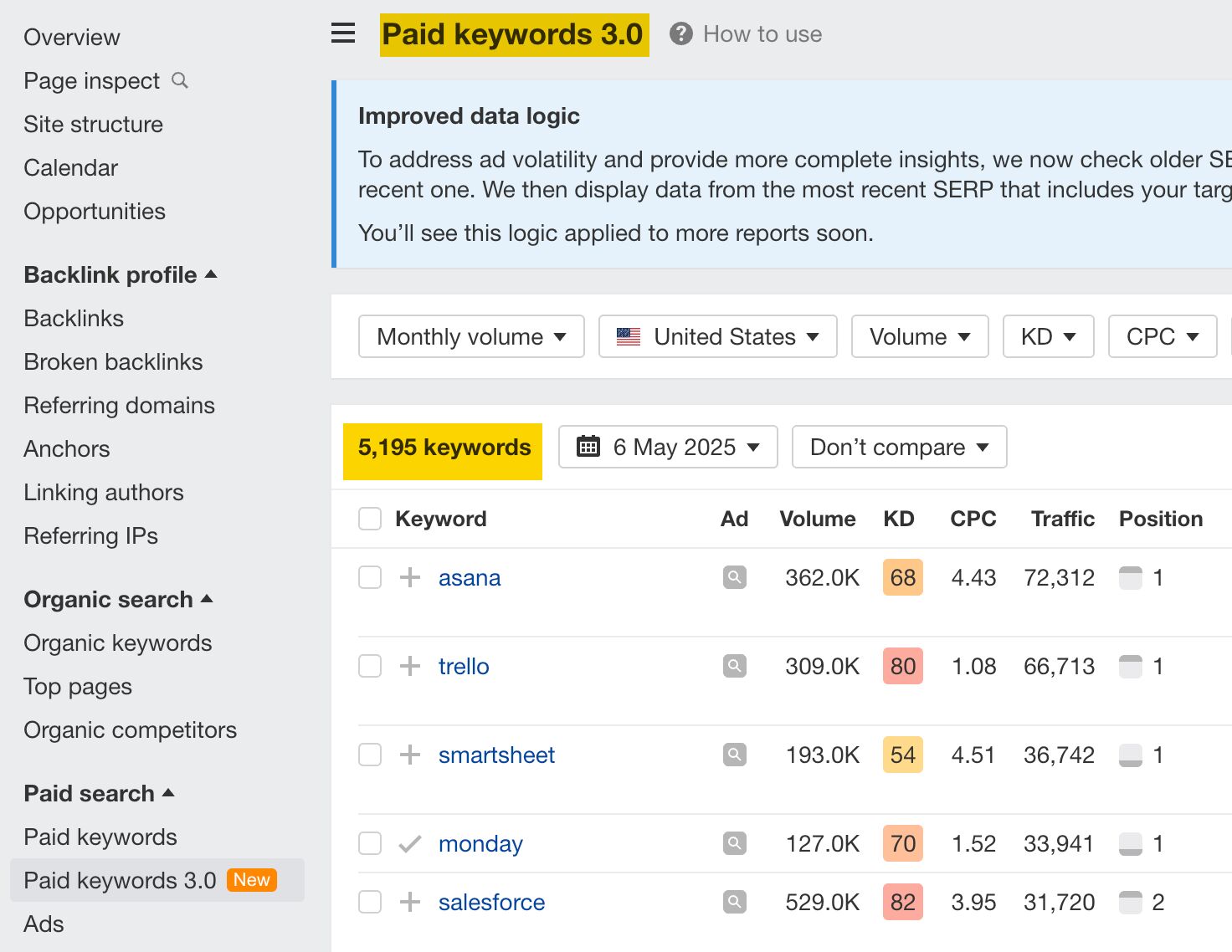
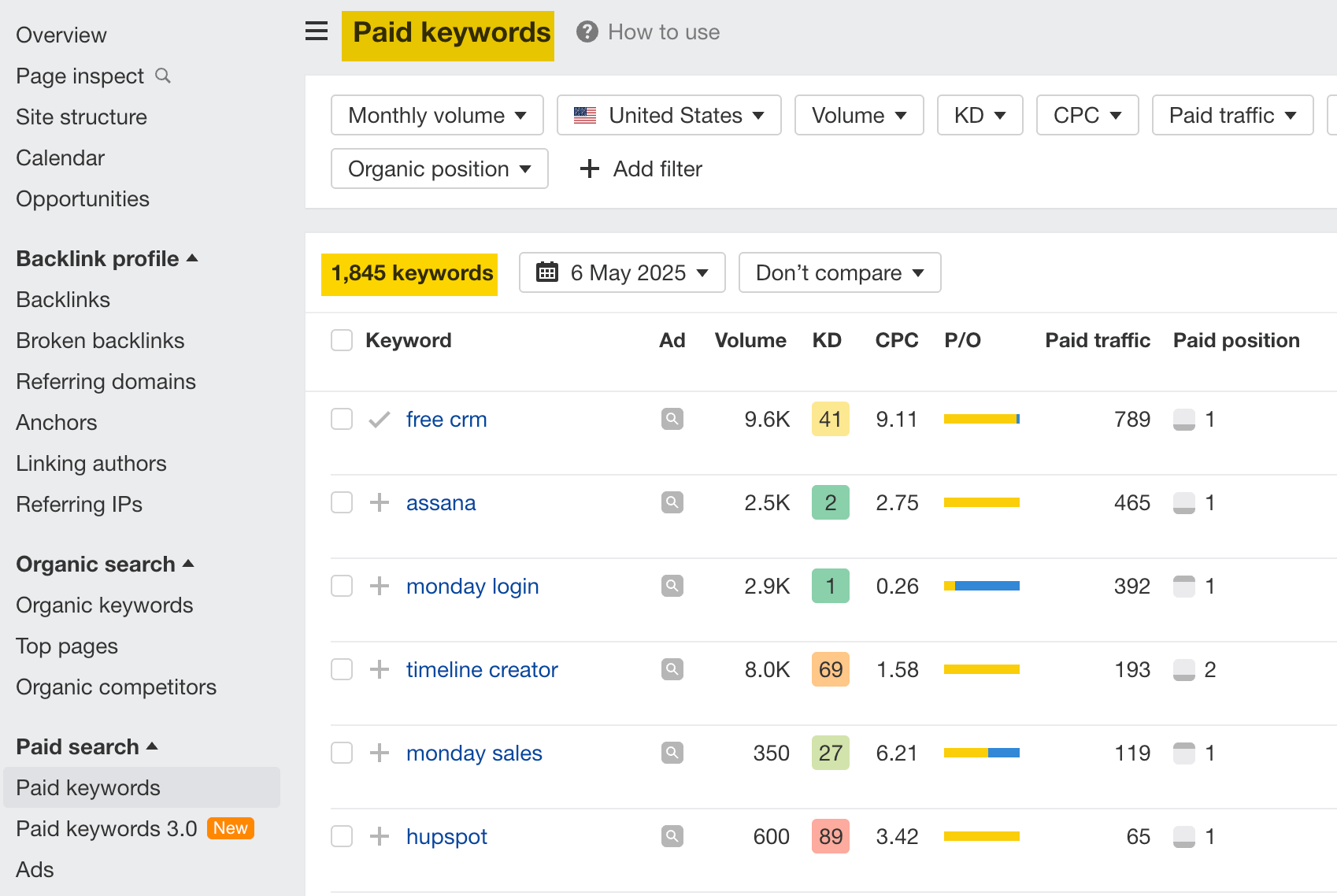
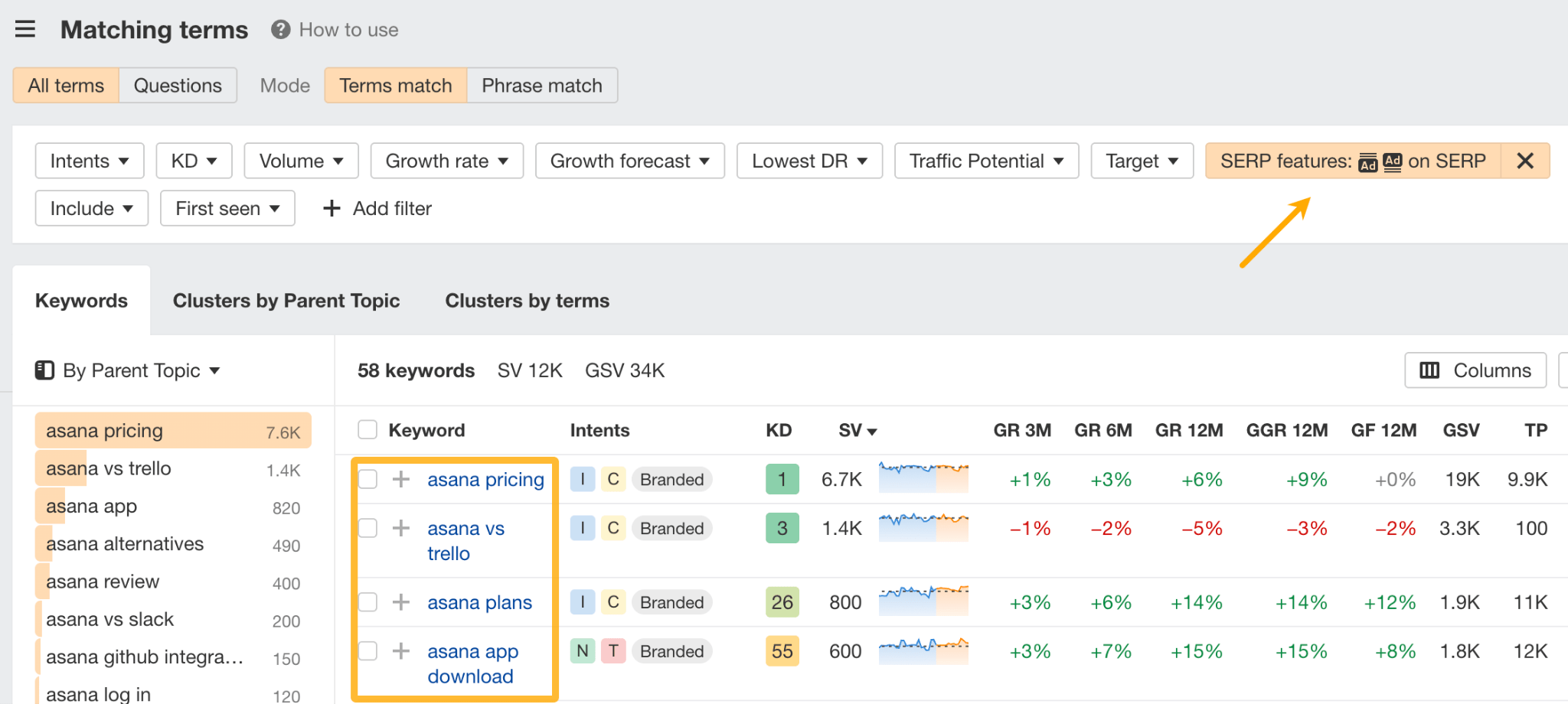
Similar Posts
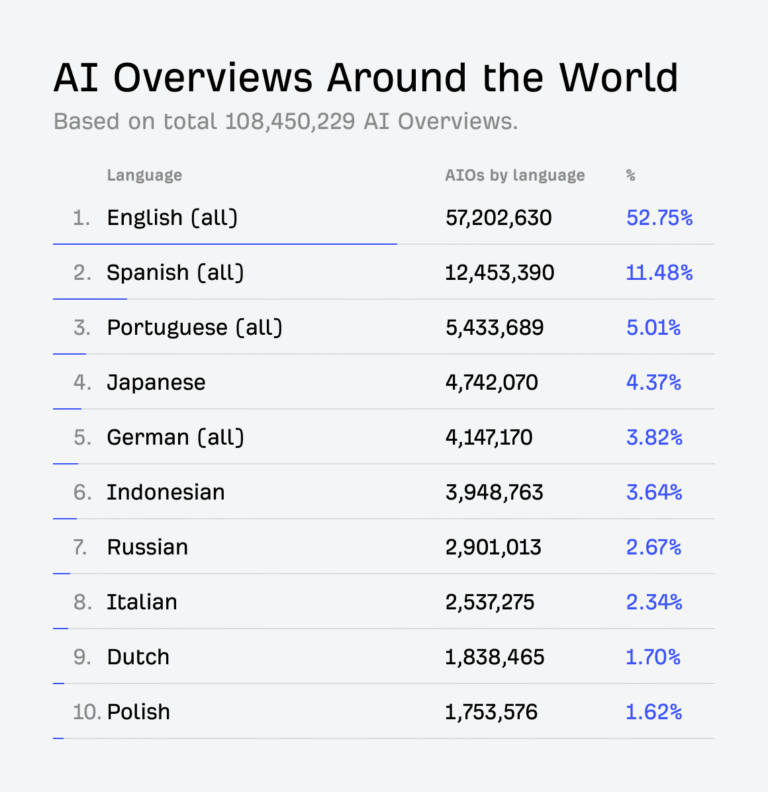
Which Countries Have the Most AI Overviews? 108 Million Queries Analyzed
Get the week’s best marketing content We analyzed our Brand Radar database of 108 million AI Overview queries to see which countries have the most AI Overviews present in Google search results. These are the top 50 countries with the biggest proportion of AI Overviews worldwide. language coverage for AI Mode as well, so these…
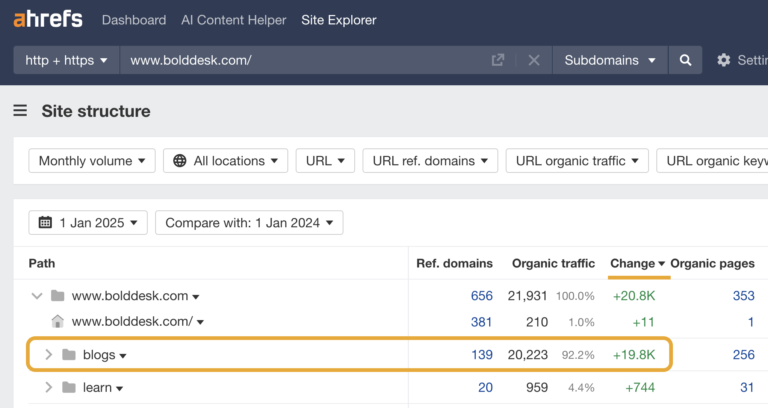
The 50 Fastest-Growing Companies (January 2025)
We’ve analyzed 2,500 startups to identify the fastest-growing companies in search over the last year. 2024 was an especially challenging year for startups. Investors exerted extra caution in the face of inflation and rising interest rates, leading to a 26% decline in funding compared to 2023. But it wasn’t all doom and gloom. Sectors like AI and…
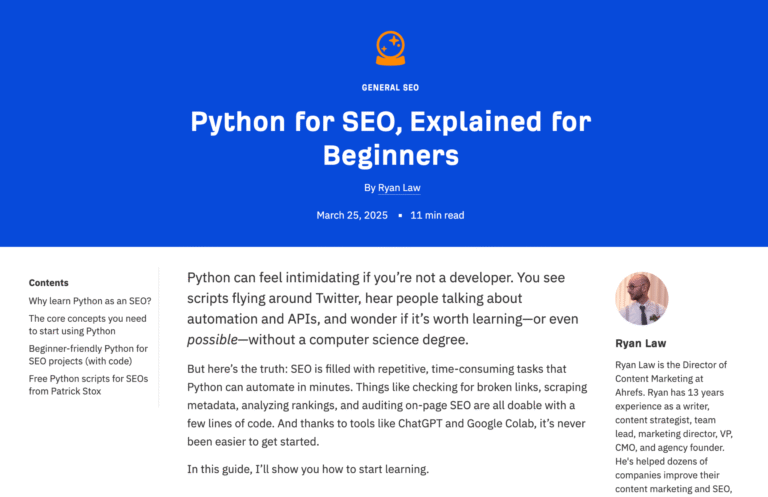
My Complete AI Content Process for Ahrefs
Here’s the complete process I use to publish high-quality AI content on the Ahrefs blog. I’ll be honest: there are parts of my job that I don’t like. Writing my 500th article on content gap analysis because we found a new long-tail keyword to target. Listing out the features of 30 free SEO tools for yet…
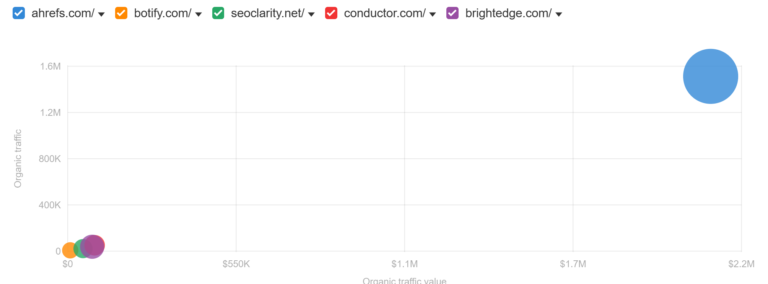
Enterprise SEO Platform Buying Guide
Onboarding an enterprise SEO platform can be a long and difficult process. Getting rid of a bad solution once it’s integrated into your systems can be even harder. Make sure you do your homework and select the right platform for you. Choosing an enterprise SEO platform can be complicated. Let’s look at what is involved in…
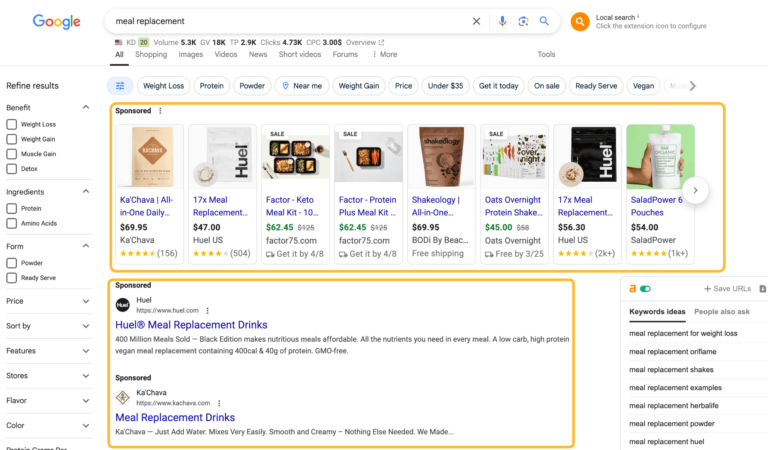
Search Engine Ads Explained in 10 Minutes (with Expert Tips)
Search engine advertising (also called pay-per-click, PPC or SEA) offers a direct path to website visitors, but is it the right choice for you? This guide breaks down what beginners need to know before investing in search ads. SEO), which take time to build, search ads appear almost instantly at the top of search results…
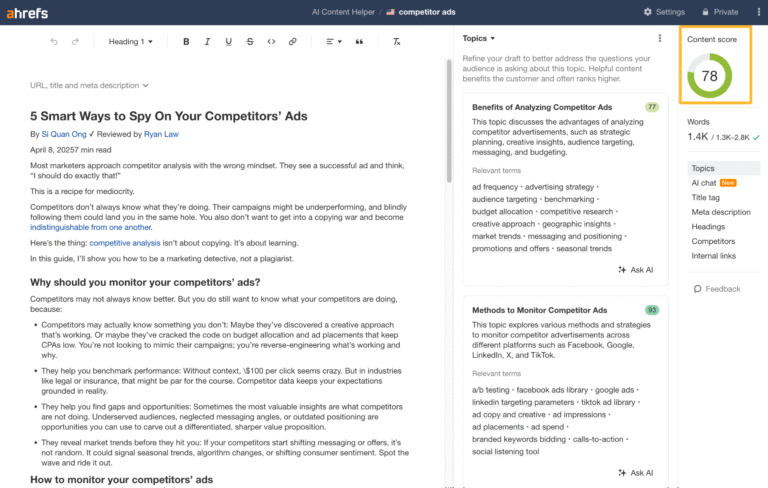
Do Higher Content Scores Mean Higher Google Rankings? We Studied It (So You Don’t Have To)
Built within these scores is an implicit assumption that the higher your score, the higher you’ll likely rank on Google. But is that actually true? To find out, I studied the correlation between rankings and content scores from five content optimization tools: Surfer, Frase, NeuronWriter, Clearscope, and our own AI Content Helper. We found weak…
